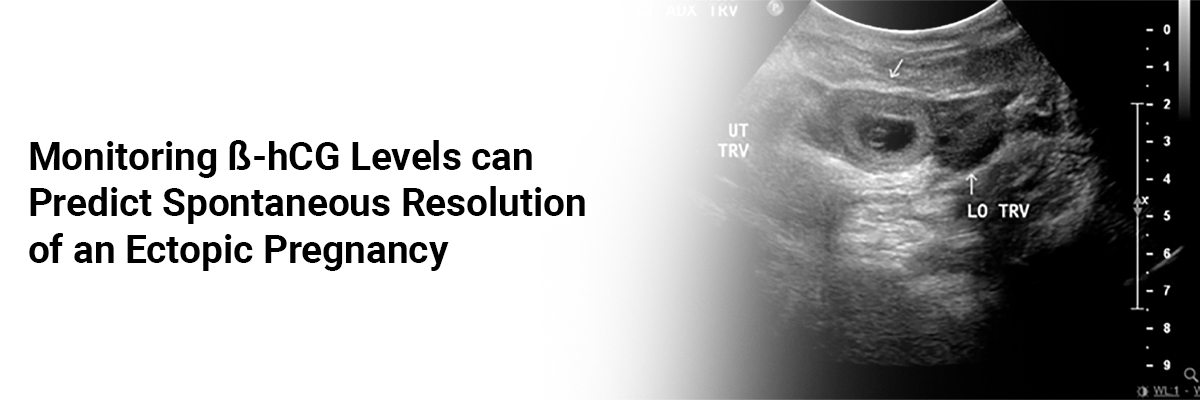
 IJCP Editorial Team
IJCP Editorial Team
Monitoring ß-hCG levels can predict spontaneous resolution of an ectopic pregnancy
The goal
of a new study was to identify accurate predictors of the spontaneous
resolution of tubal ectopic pregnancy and to assess the feasibility of
expectant management.
This was a
retrospective cohort analysis conducted at a tertiary, university-affiliated
medical center. Patients admitted from 2015-2022 who met the expectant
management criteria were included. Beta-human chorionic gonadotropin (ß-hCG)
levels were monitored for the participants. Patients achieving spontaneous
resolution constituted the "spontaneous resolution group," while
those requiring intervention formed the "failure group." The analysis
involved comparing demographic, clinical, laboratory, and ultrasound parameters
between these groups.
Overall,
210 patients were assessed and 7 women were not available for follow-up, 161
had spontaneous resolution, and 42 required further intervention. Multivariate
logistic regression analysis depicted that the last ß-hCG level before
discharge and the discharge-to-admission ß-hCG ratio were independent
predictors of the outcomes. Patients with ß-hCG <650 IU/L at discharge and a
≥50% decline during hospitalization had a 97% success rate with expectant
management. Those with ß-hCG discharge levels ≥1,000 IU/L had a 50% chance of
success, irrespective of ß-hCG decline. Other patients showed a 76% success
rate.
Therefore, short-term, serial ß-hCG follow-up at the initial presentation effectively predicts spontaneous resolution – supporting the feasibility of expectant management for ectopic pregnancies. The ideal candidates for this approach are asymptomatic individuals with ß-hCG <650 and a ≥50% ß-hCG fall.
Source:
Shulman Y, Cohen A, Bercovich O, Cohen Y, Gil
Y, Levin I. European Journal of Obstetrics & Gynecology and Reproductive
Biology. 2023 Dec 1;291:235-9.

IJCP Editorial Team
Comprising seasoned professionals and experts from the medical field, the IJCP editorial team is dedicated to delivering timely and accurate content and thriving to provide attention-grabbing information for the readers. What sets them apart are their diverse expertise, spanning academia, research, and clinical practice, and their dedication to upholding the highest standards of quality and integrity. With a wealth of experience and a commitment to excellence, the IJCP editorial team strives to provide valuable perspectives, the latest trends, and in-depth analyses across various medical domains, all in a way that keeps you interested and engaged.






















Please login to comment on this article